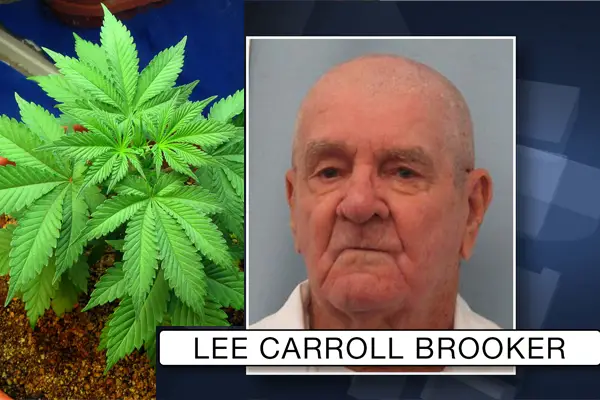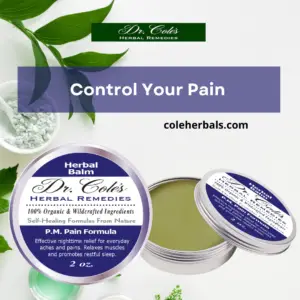Lee Carroll Brooker, a disabled 76-year-old veteran, is calling his sentence a “cruel and unusual punishment” after he was sentenced to life in prison for growing three dozen marijuana plants behind his son’s house in Dothan, Alabama.
The plants, he said, were for his personal use for treating his chronic health problems, and the prosecutors did not dispute that, reported Vox.
Yet, because of the strict Alabama laws, Brooker has to serve a sentence without possibility of parole, while even the judge himself said the punishment is too severe, but was required to enforce the sentence.
The U.S. Supreme Court declined to hear a challenge to the sentence earlier this year, but the severity of the sentence, which many call “outrageous,” opened up a discussion of many legal, moral and medical issues.
Legal and Moral Issues that Arise from This Type of Sentence
Legally, Brooker’s hefty sentence, as crazy as it may sound, is due to a law in Alabama (also found in three other states) that “mandates a life without parole sentence for simple possession of small amounts of marijuana by people with certain prior felony convictions” reported The New York Times.
Brooker served 10 years in prison over 20 years ago for a row of armed robberies. And because of that, no matter that he already served his time, he is being put in prison for marijuana possession. In a case like this, the prosecutors do not need to prove that the person was selling or intending to sell this plant.
It is also important to note, that if Brooker had less than 2.2 pounds (or 1 kilogram) of marijuana, this specific law would not apply to him, and he would most likely receive a lesser sentence. Brooker was found with 2.8 pounds of the plant; however, this weight included unusable parts of it like stems and leaves. If only the usable part of the plant were weighed, would the total come out to be less than 2.2 pounds? We will never know.
Another morally charged perspective on the issue is that marijuana is currently legal to use medically is 24 states, and legal to use for any other reason in four states. If Brooke lived in any of these 28 states, he would likely not be in prison right now.
Then it is important to look at the issue medically. While the prosecutors did not have to find proof that Brooker used marijuana medically, it is extremely probable that a veteran of his age would have chronic pain and other health conditions. When it comes to pain multiple studies have shown marijuana to be safer than opiod-based pharmaceuticals. And many studies have shown positive results for other ailments as well.
Marijuana versus Pharmaceuticals for Pain Management
While legally prescribed painkillers kill more Americans annually than any illegal drug via overdosing, marijuana is astonishingly safe in comparison, with zero known overdose cases.
It is also extremely beneficial for pain. As about 100 million Americans suffer from chronic pain, a safe pain treatment is vital. Marijuana provides that relief.
- More than 60% of patients reported decrease in chronic pain in a 2014 study published in Hawaii Journal of Medicine and Public Health. “[The] results suggest that Cannabis is an extremely safe and effective medication for many chronic pain patients. Cannabis appears to alleviate pain, insomnia, and may be helpful in relieving anxiety.”
- The Journal of Pain published their results from a double-blind, placebo-controlled, crossover study, which found cannabis to significantly improve neuropathic pain (pain that results from a nervous system injury).
- A study from the Canadian Medical Association Journal found smoking cannabis to be helpful for reducing post-traumatic or postsurgical neuropathic pain
Marijuana for Numerous Health Conditions
Although pain is the most common ailment medical marijuana is used for today, there are a lot of studies supporting its use for other conditions.
These studies showed its ability to:
- Improve symptoms of Parkinson’s disease patients with no significant side effects.
- Reduce PTSD symptoms in over 75% of patients.
- Improve cognitive function in patients with schizophrenia.
- Cannabis-based medicine showed improvements in pain due to arthritis.
- Delta 9-Tetrahydrocannabinol (THC) derived from cannabis was shown effective in treating tics associated with Tourette syndrome.
When we see so much overwhelming evidence for successful marijuana use for health issues, it is hardly a surprise that people like Brooker would be growing marijuana plants to use for health issues, even if that means exposing themselves to the incredible risks that go along with being caught.
So, in light of the evidence and his past history, do you believe Brooker’s sentence to be justified? Or should an exception be made in this case (or a change in laws for that matter)?
Let us know what you think in the comments below or on our Facebook page here.
Thanks for installing the Bottom of every post plugin by Corey Salzano. Contact me if you need custom WordPress plugins or website design.





